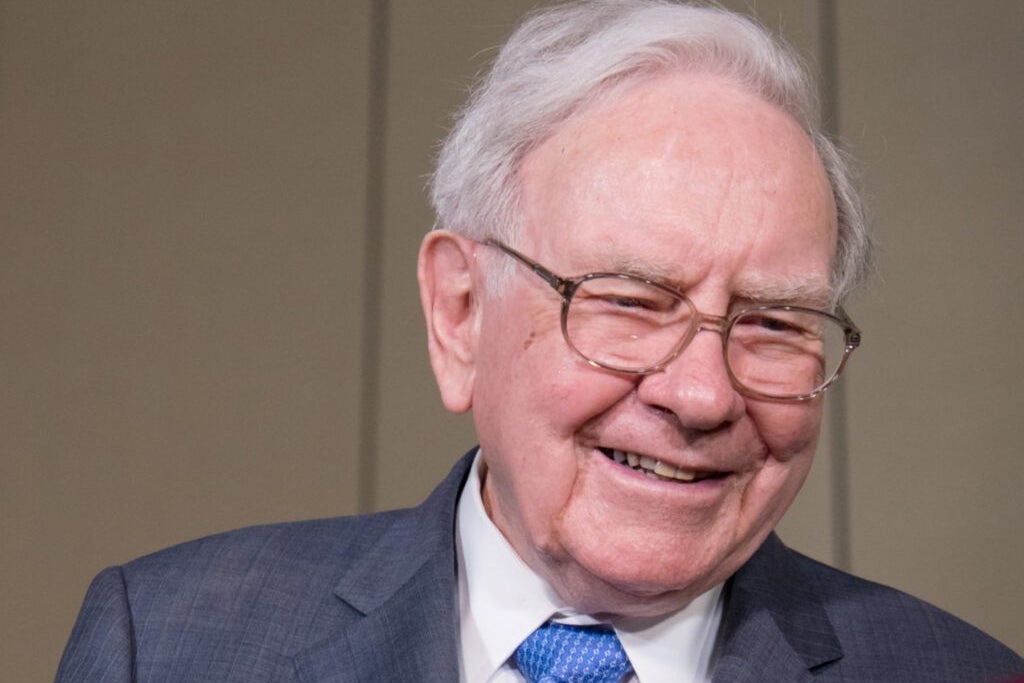Warren Buffett’s Bold Bet: How Increased Stake in Japanese Trading Giants is Shaping Tokyo’s Market
In a move that has sent ripples through the financial community, Warren Buffett has significantly increased his stake in Japanese trading giants ITOCHU and Marubeni. This bold bet not only reflects Buffett’s confidence in these companies but also underscores the shifting dynamics within Tokyo’s market. Investors and analysts alike are keenly observing how this strategic investment will influence both the companies and the broader Japanese economy.
The Significance of Buffett’s Investment
Warren Buffett, often referred to as the “Oracle of Omaha,” is renowned for his investment acumen and long-term strategies. His decision to bolster his stake in ITOCHU and Marubeni is noteworthy for several reasons:
- Market Confidence: Buffett’s investment is a strong signal to the market, indicating that he sees potential for growth in Japan’s trading sector.
- Strategic Diversification: By investing in these trading companies, Buffett is diversifying his portfolio, tapping into Japan’s robust economy.
- Long-term Vision: Buffett’s investment philosophy emphasizes patience and long-term growth, suggesting he believes in the sustained performance of these firms.
The immediate effect of this announcement has been a surge in stock prices for both ITOCHU and Marubeni, attracting further investor interest. This influx of capital not only benefits the companies directly but also stimulates broader market activity within Tokyo.
Understanding Japanese Trading Companies
Japan’s trading companies, known as “sogo shosha,” play a pivotal role in the country’s economy. They are involved in a diverse array of sectors, including:
- Import and export of goods
- Investment in various industries
- Energy resources and commodities
- Manufacturing and distribution
ITOCHU and Marubeni, two of the largest sogo shosha, have established themselves as key players in facilitating international trade. Their diversified portfolios allow them to adapt to changing market conditions, which is crucial for resilience in today’s global economy.
The Impact on Tokyo’s Market
Buffett’s increased stake is poised to have several implications for the Tokyo market:
- Increased Investor Confidence: Buffett’s endorsement of ITOCHU and Marubeni may encourage other investors to explore opportunities within the Japanese market, fostering a positive investment climate.
- Market Stability: A boost in stock prices can lead to enhanced market stability, as companies with strong backing tend to perform better under volatile conditions.
- Foreign Investment Surge: The attention from a high-profile investor like Buffett could attract more foreign investment into Japan, which has been a focus of the Japanese government to stimulate economic growth.
This strategic investment aligns with Japan’s broader economic goals, particularly in revitalizing its market and making it more attractive to international investors.
Buffett’s Philosophy and Japan’s Economic Landscape
Warren Buffett’s investment philosophy emphasizes value investing and long-term growth potential. His interest in Japanese trading companies is reflective of several key aspects of Japan’s economic landscape:
- Resilience: Japan has demonstrated remarkable resilience in overcoming economic challenges, making it an attractive market for long-term investments.
- Technological Innovation: The country is a hub for technological advancements, particularly in sectors such as robotics and energy, which can provide lucrative opportunities for trading companies.
- Government Support: The Japanese government has implemented policies to stimulate economic growth, including deregulation and incentives for foreign investors.
Buffett’s move can be seen as a calculated bet on Japan’s ongoing economic recovery and potential for future growth, reinforcing his status as a savvy investor who understands market dynamics.
What This Means for ITOCHU and Marubeni
For ITOCHU and Marubeni, Buffett’s increased investment signifies more than just a financial boost; it represents a vote of confidence in their business models and operational strategies. Here’s how this can influence these companies:
- Enhanced Credibility: With Buffett’s backing, both companies can enhance their credibility in the eyes of investors and partners, making it easier to forge new relationships and secure contracts.
- Increased Resources: The surge in stock prices can provide both companies with additional resources to invest in expansion, research, and development, driving future growth.
- Global Expansion: A strengthened position in the market may enable both firms to explore new global markets, leveraging their established networks and expertise.
As these companies navigate the complexities of global trade, Buffett’s investment positions them favorably to capitalize on emerging opportunities.
The Broader Implications for Investors
Investors looking to enter the Japanese market should consider the implications of Buffett’s investment carefully. His track record suggests that he conducts extensive research before making significant investments. Here are a few takeaways for potential investors:
- Research and Analysis: Conduct thorough research on companies before investing, focusing on their financial health, market position, and growth potential.
- Diversification: Consider diversifying investments across various sectors to mitigate risks associated with market fluctuations.
- Long-Term Perspective: Emulate Buffett’s long-term investment philosophy, focusing on companies with solid fundamentals and growth prospects rather than seeking quick gains.
In conclusion, Warren Buffett’s bold bet on Japanese trading giants ITOCHU and Marubeni is shaping not only their futures but also the broader Tokyo market. This strategic investment reflects confidence in Japan’s economic resilience and opens doors for increased foreign investment. As the market responds to this significant shift, both seasoned investors and newcomers are advised to stay informed and consider the potential of Japan’s trading companies in their investment strategies.
See more CNBC Network



